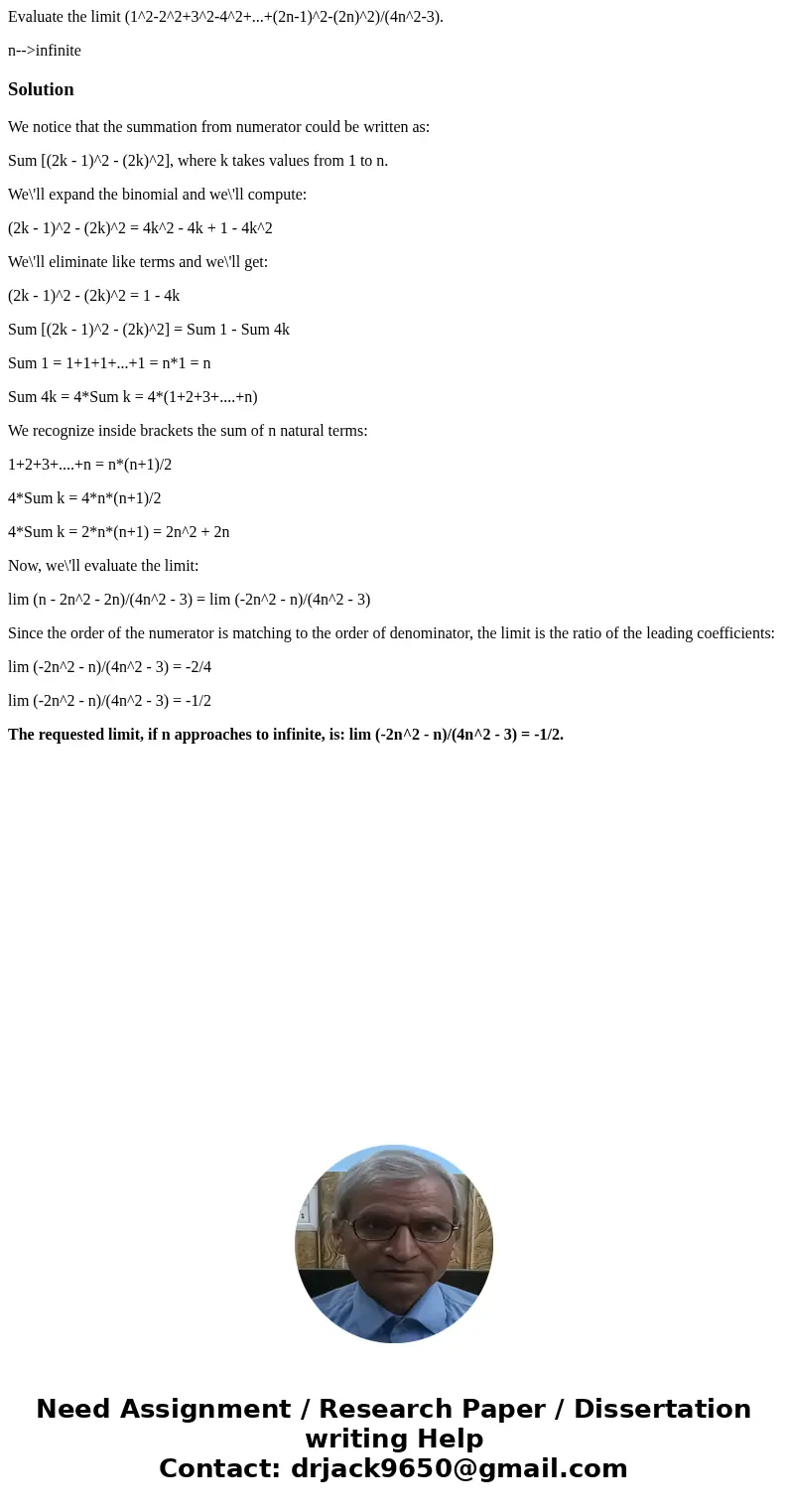Evaluate the limit 122232422n122n24n23 ninfiniteSolutionWe n
Evaluate the limit (1^2-2^2+3^2-4^2+...+(2n-1)^2-(2n)^2)/(4n^2-3).
n-->infinite
Solution
We notice that the summation from numerator could be written as:
Sum [(2k - 1)^2 - (2k)^2], where k takes values from 1 to n.
We\'ll expand the binomial and we\'ll compute:
(2k - 1)^2 - (2k)^2 = 4k^2 - 4k + 1 - 4k^2
We\'ll eliminate like terms and we\'ll get:
(2k - 1)^2 - (2k)^2 = 1 - 4k
Sum [(2k - 1)^2 - (2k)^2] = Sum 1 - Sum 4k
Sum 1 = 1+1+1+...+1 = n*1 = n
Sum 4k = 4*Sum k = 4*(1+2+3+....+n)
We recognize inside brackets the sum of n natural terms:
1+2+3+....+n = n*(n+1)/2
4*Sum k = 4*n*(n+1)/2
4*Sum k = 2*n*(n+1) = 2n^2 + 2n
Now, we\'ll evaluate the limit:
lim (n - 2n^2 - 2n)/(4n^2 - 3) = lim (-2n^2 - n)/(4n^2 - 3)
Since the order of the numerator is matching to the order of denominator, the limit is the ratio of the leading coefficients:
lim (-2n^2 - n)/(4n^2 - 3) = -2/4
lim (-2n^2 - n)/(4n^2 - 3) = -1/2
The requested limit, if n approaches to infinite, is: lim (-2n^2 - n)/(4n^2 - 3) = -1/2.

 Homework Sourse
Homework Sourse